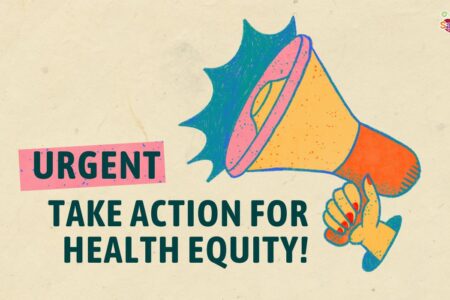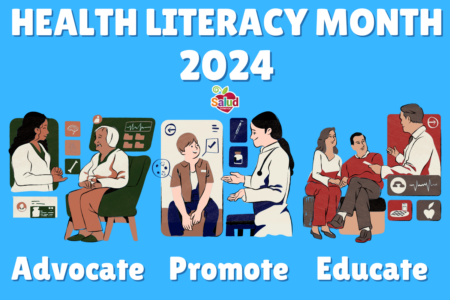
Share On Social!
Several months ago, the Association of American Medical Colleges (AAMC) Center for Health Justice sought public responses on important health equity issues in the U.S.
Now the poll results are in – and you can use the data for your own research!
AAMC is seeking your proposal, now through March 4, to use the new polling data to answer important health equity-focused questions and inform health policy.
“Improving community health requires accurate and relevant data to identify population health inequities, develop locally relevant interventions, and track progress toward health equity,” the AAMC said of their work.
About the New Poll Data on Health Equity
The new poll is part of AAMC’s effort to collect evidence and information on health inequities, which includes regularly conducting nationally representative polls to learn about the health inequities in communities across the country.

Previous data sets formulated by polling include topics on civic engagement, birth experiences and trustworthiness of institutions.
This time, AAMC surveyed over 6,000 adults across the nation to gather valuable information on five different subject areas — concepts of health equity and health justice, access to health care, child health equity, financial equity, and disability equity.
Within these categories are data on factors that contribute to healthy communities, barriers to accessing care, identification of the most pressing child health issues, COVID-19 impacts on financial security, perceived trustworthiness of public institutions, and more.
A glimpse into some of these areas reveal that 86% of U.S. adults agree that every community deserves health equity – an equal opportunity to be healthy – and 17% say mental health and stress are their top concerns when it comes to child health equity.
AAMC now wants to help researchers use the data for studies that address health inequities.
Applying to Access the New Poll Data on Health Equity
Access to AAMC’s polling data will be given to up to five selected teams with research proposals designed around health equity that provide questions the data answers and helps inform health policy at no cost.
Each team will consist of three to five members made up of researchers, academic medicine instructors, medical providers, faculty, nonacademic professionals, and community members.
Applicants must be a member of AAMC CHARGE.
Once selected, teams will be given access to the data for 2 years to complete their studies. At the end of the study, they will share summary findings with the AAMC.
“The AAMC will consider support for researchers to present their findings on additional platforms, such as webinars or conferences,” according to the AAMC website.
To be considered, applicants must submit a brief proposal outline containing the research questions, timelines, methods, and potential impact of the study through the online application portal by the March 4, 2024, 11:59 p.m. ET, deadline.
Selected teams will be notified on March 21, 2024.
In addition, AAMC is offering a webinar at 2 p.m. ET on Thursday, Feb. 15, 2024, to go over the application process, details, and address any questions. For those who can’t make the webinar, a recording will be made available on the AAMC CHARGE Investigates webpage.
Accessing Health Equity Data for Your Community
You don’t have to be a researcher to gain access to health equity data for your community.
Familiarize yourself with the ins and outs of your neighborhood by downloading a Health Equity Report Card by Salud America! at UT Health San Antonio.
The Health Equity Report Card uses maps and data to give you a readout of where your community stands on important health equity issues, such as housing, education, and poverty.
This information can be compared to the rest of your state and the country.
The Health Equity Report Card can be emailed to your local leaders, shared on social media, or used to make a case for positive change in your community.
By The Numbers
25
years
of life expectancy between some U.S. cities.




… [Trackback]
[…] Read More: salud-america.org/dr-francisco-g-cigarroa-the-first-latino-chancellor-of-the-university-of-texas-system/ […]